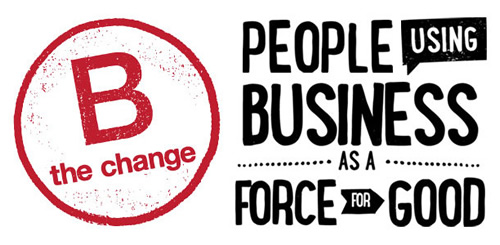
Certainly they had seen that the ‘profit above all’ model is destructive to us all, and they sought to prove the value of balance. The standard was set: We believe that business can and should operate in a way that is good FOR the world.
The decision of a company to be a positive force involves many choices; from the products that are manufactured, to the resources that are utilized, to the impact on the environment, to the treatment of employees, to the profits and wellbeing of the business. With all factors considered, the bottom line has to be Balance: consider the impact of your decisions and find a balanced way forward.
Regarding AMS’ decision process, CEO Ken Wiseman said, “Our mission statement points to the balance between Customer, Organization, Community, and Self. When the weight of importance of all you impact is part of your core mission, your compass keeps you true to your path.”
Recently we heard from the automaker, Chevrolet, that they will close number of manufacturing plants in the US. The reason given was restructuring. The corporation is turning its concern to innovation with plans for the cars of the future requiring more computer coders but fewer engineers who work on internal combustion engines. As we know, their decision will affect the lives of workers, families and communities. Many workers will be laid off, some will accept buy-offs, and time will tell what the result will be.
We’re not analyzing GM’s executive choices or decisions as only they know all the facts. But we do encourage GM and any other automakers following this track to do their best to bring about a positive outcome for the community and the employees as they adjust to this change. Let Balance be the bottom line.
The Ventura-based company, Patagonia, recently made a decision that offers inspiration to other B-Corps and the world. Patagonia, recognized as the first California B-Corp, started out years ago making mountain-climbing equipment, and then they moved forward due to ‘changing times’. Gradually they began making outdoor clothing and gear, and they continued to grow.
It makes sense that this business, focused on outdoor gear, has a commitment to the environment and environmental issues. Recently Patagonia donated the $10 million it saved from tax cuts to non-profit environmental groups.
The company’s website explains their position: “For-profit firms face legal pressure to forgo social goals in favor of maximizing profits. Current law requires corporations to favor the financial interests of shareholders over the interests of workers, communities and the environment. And nonprofit organizations and charities are often needlessly restricted in their ability to raise capital when they need to grow.”
Perhaps one of the answers to balance is to be able to see in the long-term. On the day that the business signed up to be a B-Corp, the founder, Yvon Chouinard said, “Patagonia is trying to build a company that could last 100 years.”
AMS Fulfillment is proud to be in the company of other B-Corporations such as Patagonia, and we are inspired whenever we see corporations creating a balance between profits and the future of the company, and community, employee and environmental needs.
Jay Catlin, founder and AMS President, offered the following: “Becoming a B-Corporation has aligned our direction as a company with many of the greats. Patagonia certainly exemplifies the character of a B-Corp as they inspire others, including AMS, to operate with a greater social consciousness.”
Profit is not the bottom line for AMS although our business is and has always been profitable, thriving and growing. We, like other B-Corps, intend to demonstrate that a company can be both good For the world, and profitable.




